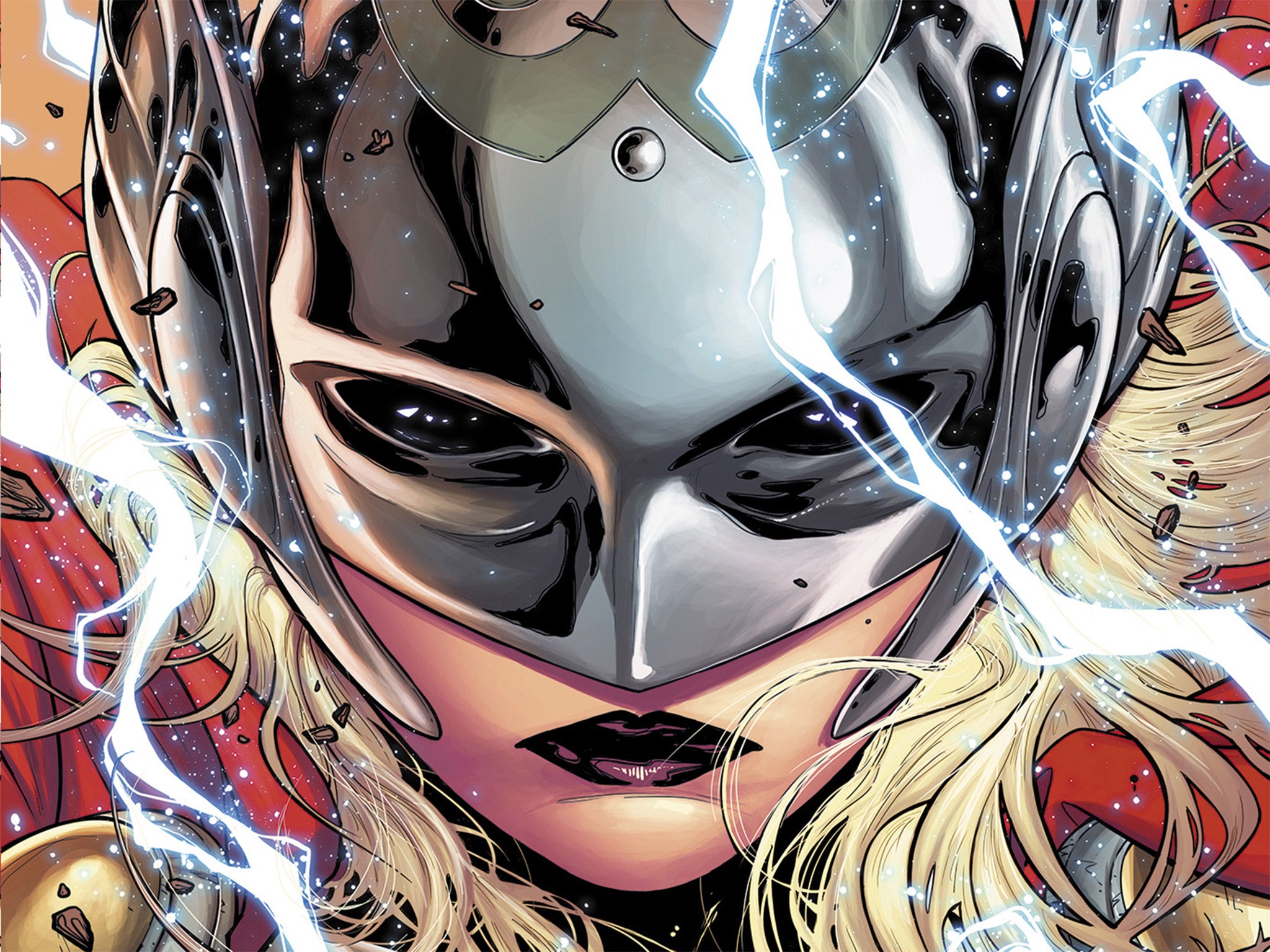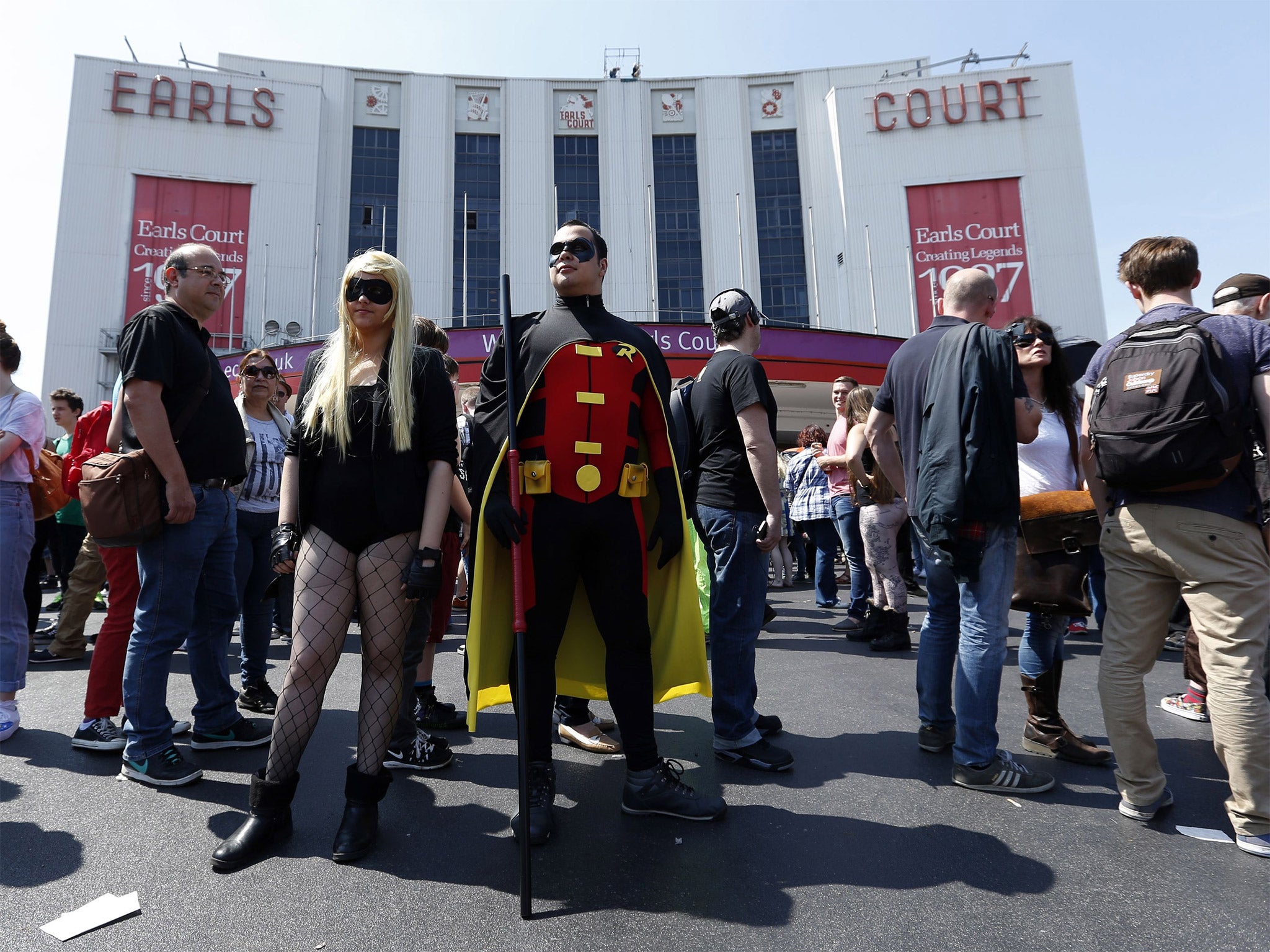Thor as woman: Just a marketing ploy - or a sign of an industry in tune with the times?
Marvel has announced that the God of Thunder, as played by Chris Hemsworth in the film franchise, is due to become a Goddess of Thunder

Your support helps us to tell the story
From reproductive rights to climate change to Big Tech, The Independent is on the ground when the story is developing. Whether it's investigating the financials of Elon Musk's pro-Trump PAC or producing our latest documentary, 'The A Word', which shines a light on the American women fighting for reproductive rights, we know how important it is to parse out the facts from the messaging.
At such a critical moment in US history, we need reporters on the ground. Your donation allows us to keep sending journalists to speak to both sides of the story.
The Independent is trusted by Americans across the entire political spectrum. And unlike many other quality news outlets, we choose not to lock Americans out of our reporting and analysis with paywalls. We believe quality journalism should be available to everyone, paid for by those who can afford it.
Your support makes all the difference.The Mighty Thor is a woman. That may sound like a sexist insult roared by the Hulk during one of the Marvel superheroes' many seismic punch-ups, but it's actually a statement of fact.
Marvel has announced that the God of Thunder, as played by Chris Hemsworth in the film franchise, is due to become a Goddess of Thunder later this year. And he (or she) isn't the only comics icon to find that the times are a-changin'. Also this week, in what read like a mis-timed April Fool's joke, Archie, an all-American teenager since 1941, died in Life With Archie issue number 36 when he intercepted an assassin's bullet intended for a gay senator.
That's not all. Marvel has just rebooted Ms Marvel as a Pakistani-American Muslim, and it recently unveiled a superhero team featuring no white males. Are mainstream comics finally embracing political correctness? Or – just throwing the idea out there – are they merely making headline-friendly changes in a desperate bid for free publicity?
"You can be cynical about it," says Chris Thompson at London's Orbital Comics shop, "but, in reality, these changes are more about redressing the balance. Up until now, superheroes have been straight white males, so by introducing gay characters, varying their ages, and putting in more women, they're just reflecting the diversity of the readership. This way, anyone who walks into a comic shop can find a character they relate to."

As for Thor's gender swap, says Thompson, it's in keeping with the character's mythology. "The idea is that anyone who picks up Thor's hammer gets the power, as long as they're worthy of it. He's been a frog before, he's been an alien, so why not a woman? And actually they've been building towards this within the series for quite some time. It's a natural evolution rather than a sudden switch."
So not a sign of an industry on the skids, then? Thompson thinks not, and Danie Ware at London's Forbidden Planet megastore agrees. "Superhero comics are doing fantastically well at the moment," she says. "Sales are booming, and we put that down to the mainstream acceptance of geek culture in general. Superhero movies have been absolutely huge, too, especially the Marvel ones [Iron Man, Captain America, Thor, Avengers Assemble]. We find that the films draw people in, and then they want to explore all the platforms for those characters: they buy the comics, they collect the collectibles." And they attend, as thousands did in London last weekend, events such as the London Film and Comic Con 2014.
Take a glance at the sales figures, and Ware's positivity seems to be borne out. In America, comics made more than $500m (£292m) last year, which is over $100m more than they made in 2003 – even if it's a long way below the industry's 1993 peak of $800m. The current wave of superhero blockbusters seems to be taking comics up, up and away.
Well, maybe. But if you look at the sales of each individual title, comics still appear to be a niche commodity, even if the associated DVDs, T-shirts and lunchboxes aren't.
"There's the odd superhero comic that breaks 100,000 copies," says Paul Gravett, the co-curator of the British Library's Comics Unmasked exhibition. "But most of them sell well below that. The movies and TV show are helping, of course, but superhero comics are really quite a minor part of the product range now. They're really only useful as a source of reboots which can then be made into movies and cartoons."
But surely even Gravett – a champion of indie graphic novels – would acknowledge that a female Thor is a step in a more progressive direction? "Have you seen the pictures?" he asks with a sigh. "Show a woman in the street that crap image of Thor with tits, and ask her if she would read something like that. Of course she wouldn't. It won't make a blind bit of difference."
Join our commenting forum
Join thought-provoking conversations, follow other Independent readers and see their replies
0Comments